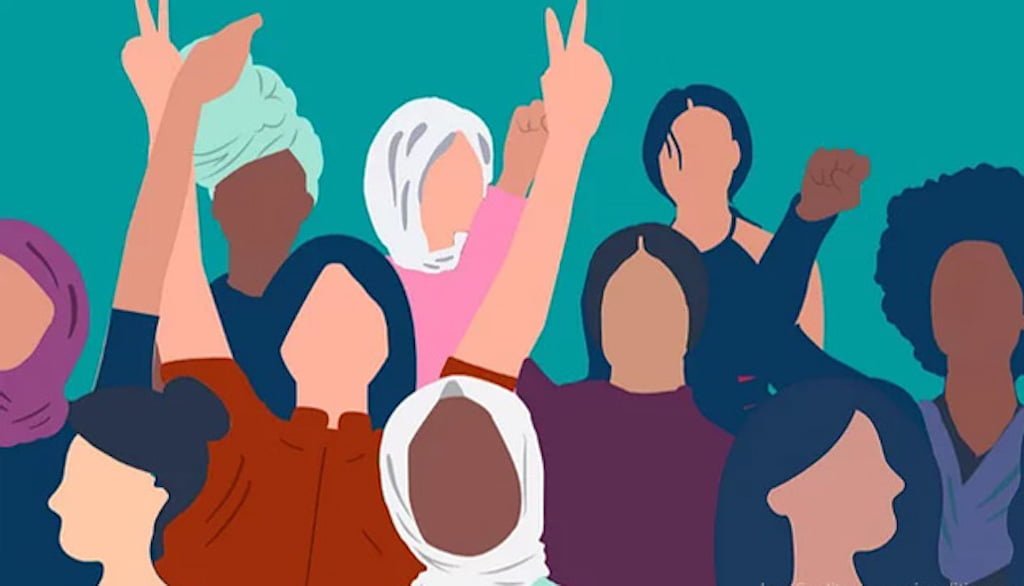Samiah Ogunlowo
According to Statista, the women in national parliaments in Africa statistics from August 1, 2022 ranked Nigeria last with only 3.6 per cent of women holding seats in the country’s lower chamber, House of Representatives.
The highest-performing nations in terms of female representation all have election quotas for women, which Nigeria does not have.
The United Nations also scored Nigeria low in the area of women’s participation in politics, compared to other African countries like Rwanda and Senegal with percentages as high as 67 and 57 respectively.
According to the UN Women Representative to Nigeria and the Economic Community of West African States (ECOWAS), Beatrice Eyong, who spoke at a “He for She” (a term for men who are supporting gender equality) meeting, organised by the Centre for Democratic Development (CDD) on Nov. 30, 2022, Nigeria is still staggering at the bottom with only 4.1 per cent.
The Women Representation in African Parliaments (WRAPs) Q4 ranking of women participation in Nigerian politics recorded women’s inclusion in only 21 out of the 36 states’ houses of assembly, with just five being the highest number of seats occupied by women.
15 state houses of assembly have no female representation, and just 43 (4.35 per cent) of the 988 total seats are occupied by women, with the other 945 seats taken by men.
Currently, just 13 women serve in the House of Representatives out of 360 members, accounting for around 3.61 per cent; the Senate has eight women out of 109 members, accounting for 7.34 per cent.
The same trend affects all levels of governance in states and local government areas of the country. According to data presented by Minister of Women Affairs, Pauline Tallen, in May 2022, the country has a low number of women in politics and other areas of leadership.
According to sources, Nigeria’s national average of women’s political involvement in elective and appointive roles remains at 6.7 per cent, significantly behind the global average of 22.5 per cent, Africa’s regional average of 23.4 per cent, and West Africa’s sub-regional average of 15 per cent.
According to the World Economic Forum’s Global Gender Gap Report Ranking on Women Political Participation, Nigeria is worse off in 2019 (102nd) than it was nine years ago (99th).
Despite growing agitation in the previous three years for gender balance and more active female engagement in politics, female representation in the next 2023 polls is the poorest compared to the figures from the 2015 and 2019 parliamentary elections.
Despite the current parliament’s low female representation, the proportion of female candidates in the elections that produced the current legislators is greater than what is on the list for next year’s general elections.
According to a report titled, “No Country Without Women” by a civil society organisation, YIAGA Africa, women had 12.3 per cent of Senate seats in 2019, “a decrease from 17 per cent it had in 2015 elections”.
The Independent National Electoral Commission (INEC) has announced the final list of candidates for the 2023 elections, with just 374 women vying for the 469 seats in the National Assembly – 109 in the Senate and 360 in the House of Representatives.
The list shows the limited presence of women in politics in Africa’s most populous country and one of the world’s largest democracies, as has been the practice since Nigeria’s return to democracy in 1999.
Nigeria has the biggest population of educated women, yet one of the lowest rates of female political engagement, a semiotic indicator of the discriminatory ideology inherent in her young democracy.
Nigeria’s female population was around 105.91 million in 2021, while the male population was roughly 108.65 million, representing an annual growth rate of 0.23 per cent since 1950.
However, despite population expansion, the ratio of women in politics has not increased much.
There have been efforts to increase women’s participation in politics and decision-making, but women continue to be underrepresented at all levels of government, despite being over half of the electorate.
The underrepresentation of women in political engagement arose, in part, as a result of patriarchal practices ingrained in the Nigerian culture, much of which was seen from pre-colonial times to the present.
The nation now ranks 181 out of 193 on the Gender Equality Index, owing to factors such as insufficient resource allocation in the economic and social sectors, repeated wars, forced displacements, and inadequate inclusion of women and girls’ perspectives in policy-making choices. Also, insufficient legislative framework and competence to promote women’s empowerment and equality activities are part of the impediments.
Despite the important role women have played in the country, they are still mainly missing from national and subnational decision-making organisations.
Five legislations aimed at increasing chances for women in political parties, governance, and society at large were all rejected by the country’s legislature in March 2022. One bill, which attempts to extend citizenship to foreign-born spouses of Nigerian wives, was rejected, while a Nigerian man’s foreign-born wife is already a Nigerian citizen.
Following a nationwide outcry by women, three of the gender proposals were withdrawn: a law to broaden the scope of citizenship by registration, affirmative action for women in political party administration, and a provision for criteria to be an indigene of a Nigerian state.
While Nigerian women have committed to continue fighting the sexist attitude of certain politicians, as well as the pattern of negligence toward women’s problems and contempt for womanhood, there is still a long way to go.
Women’s political engagement is vital for democratic government. However, due to restrictive laws and institutional impediments; discriminatory cultural practices; and disproportionately low access to excellent education, healthcare, and resources, girls and women continue to be disenfranchised from the political sphere across the world.
